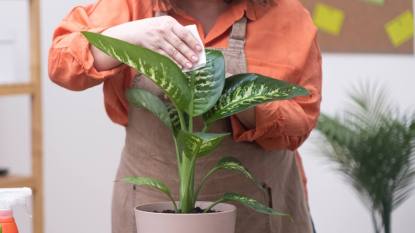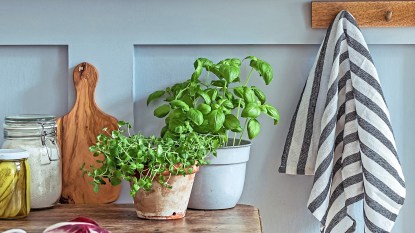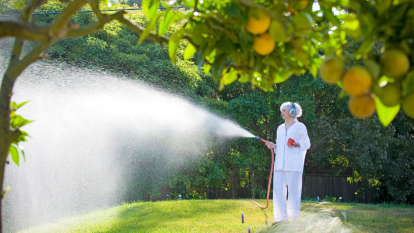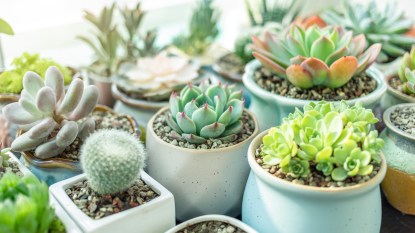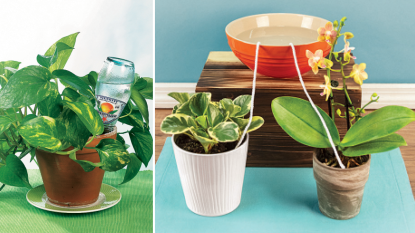No Need to Toss Your Rusty Garden Tools: Here’s How to Clean Them According to Garden Experts
Plus the surprise sticky solution that works wonders
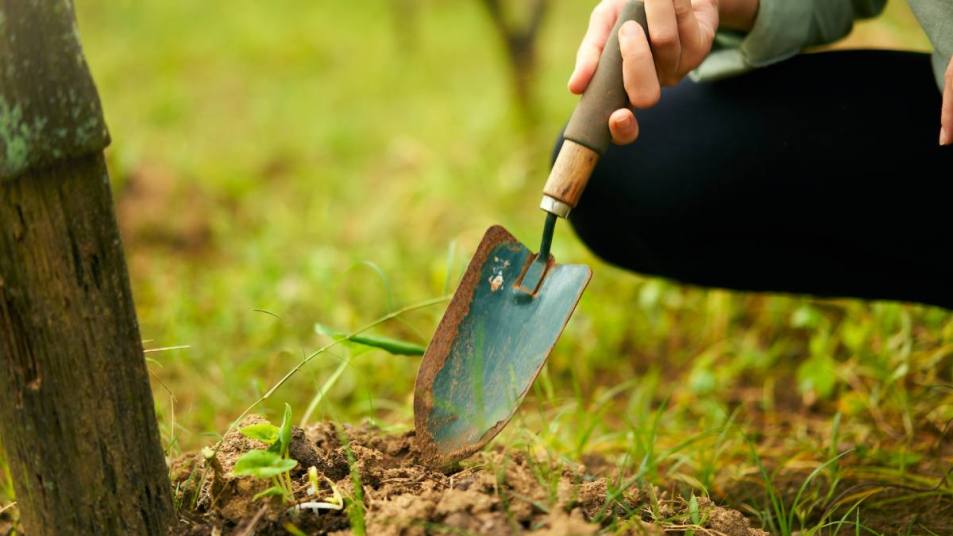
We’ve all forgotten a tool outside only to come back later and find it dirty and rusty. The good news is you don’t have to throw those tools away and splurge on new ones. There are a few simple ways to actually get rid of the rust and have your trusty garden tools looking (almost) as good as new again. Keep scrolling for expert advice on how to clean rusty garden tools tips — and how to keep rust away from your tools in the future.
How does rust form on garden tools?
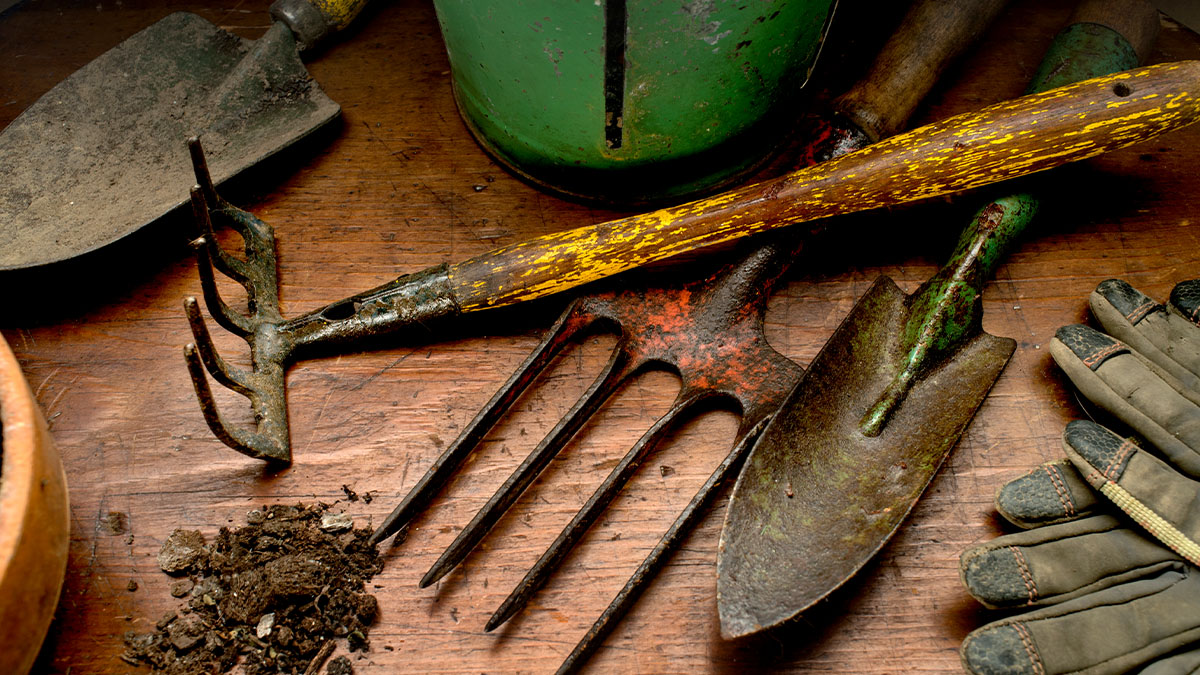
Rust forms on tools when metal that contains iron oxidizes because it is exposed to both moisture and oxygen. “This usually happens from normal use and from improper storage,” says Linda Ly, gardening expert and founder of the website Garden Betty. “If you don’t wipe down your tools after using them, or leave your tools outside in the elements, they’ll eventually start to rust if the iron or steel is continuously exposed to moisture from soil, dew or humidity.” Besides it looking unsightly, there are other reasons you don’t want to leave them that way:
- Tool health: Rust can weaken your tools over time, making them less effective and potentially unsafe if they break during use.
- Ease of use: Rusty tools might not cut or dig as smoothly, requiring more effort from you and potentially damaging plants due to uneven or jagged cuts.
- Spread of rust: Rust can spread to other metal objects if they’re stored together without proper care.
How to clean rusty garden tools step 1: Clean surface dirt
Begin by cleaning surface dirt from the tool. This will help you see where the rust is and where you just have dirt from improper storage. Keep in mind that the longer the rust has stayed on the tool, the harder it is to clean, says Ly. Next — if you can — disassemble the tool, so that you’ll be removing rust from all of its nooks and crannies. Then it’s on to cleaning!
How to clean rusty garden tools step 2: Pick a cleaning method
1. A white vinegar (or vinegar and salt) soak
The simplest method for removing rust from tools is to submerge them in a vinegar bath of either plain white vinegar or cleaning vinegar, which has a stronger concentration of acid. When applied to rust, vinegar creates a chemical reaction that dissolves the oxides in the rust, leaving behind a salt that can be easily wiped away with a cloth. “Small amounts of rust may dissolve in just an hour or two, but very rusty tools typically need to soak for 12 to 24 hours,” says Ly. Alternatives to using plain vinegar include adding a quarter cup of salt to about four cups of vinegar to increase the acid concentration, using a mixture of half vinegar and half water for lightly rusted tools, or using 30% vinegar for serious rust issues. Wear gloves and check tools frequently if using 30% vinegar, though, as it can damage tools if they’re left soaking for too long, and it can also burn your hands.
See this video from The Ripe Tomato Farms demonstrating the vinegar acid bath method:
2. Baking soda and water paste
Baking soda is an abrasive that can help to remove rust on lightly rusted tools. Simply make a paste of baking soda and water, and let it sit on the tool for a few hours, says the folks at Home Depot. Come back later and use a brush to rub the baking soda paste — and hopefully the rust! — away. Keep in mind that this likely won’t work as well if your tools are heavily rusted.
See this video from JoeGardenerTV that demonstrates several rust-removal methods, including the baking soda method above
3. Molasses rub
Believe it or not, molasses isn’t just for baking. It can be used to remove rust from your tools as well! Molasses contains chelating agents that bind with the rust, making it break free from the base metal, says Joseph Truini, home improvement expert, author of Building Sheds and creator of the new Youtube channel JoeShowsHow. Simply submerge the tool in a mixture of one part molasses to nine parts water. “The molasses will hold the rust in a solution, making it easy to wipe away later,” says Truini. “For light surface rust, let the tools soak for one or two days. To remove rust from heavily corroded surfaces, you may need to soak the tools for up to two weeks.”
4. Lemon or lime juice and salt solution
Don’t want to use vinegar on your tools or wait a few weeks for molasses to work? A solution of salt and lemon or lime juice will also work to remove surface rust from tools, say the folks at Home Depot. The salt will act as an abrasive, while the acid in the lemon juice is a corrosive agent that will act to break down the rust. Mix the lemon juice and salt together to form either a paste or solution. The amount of each isn’t too important. If you have more lemon juice, submerge the tools in the solution for about two hours. If you’ve made a paste, apply it to the rusty areas for the same period of time. Keep in mind that the acid in lemon juice isn’t as strong as vinegar, though, so you’ll also need to scrub a bit with this method, using a wire brush, a scouring pad or some steel wool.
See this method in action on tools in the video from Crisium below:
5. A ketchup rub
Though a popular online tip for removing rust, ketchup isn’t as useful other DIY rust removers, say experts. “The only reason ketchup somewhat works is because it has vinegar in it,” says Truini, who suggests using straight vinegar instead (per the tip above). “It’s cheaper and much more effective.”
This video from Make Stuff shows how to use ketchup for rust removal
6. Elbow grease
How to clean rusty garden tools without using any solutions? Unless your tools have been left rusting for decades, you can likely also remove any surface rust by using an electric sander, some steel wool or a piece of sandpaper. “Surface rust can be removed by scrubbing the tool with a wire brush,” says Truini. “But a quicker, easier way is to chuck a wire wheel into an electric or cordless drill.” He cautions that homeowners should always wear protective goggles or a face shield to protect from any loose wires flying off the spinning wheel, though.
7. Commercial rust removers
Commercial rust removers contain one of a variety of acids that will also remove rust from your trusty tools, such as oxalic acid, tannic acid, EDTA and citric acid. “If none of the above techniques work, then you’d have to try a commercially available chemical rust remover,” says Truini. Some of these include Evapo-Rust, CLR, Iron Out and Bar Keepers Friend. Keep in mind that commercial rust removers use acid to dissolve rust, and Truini recommends trying the DIY methods first.
Related: 11 Brilliant Uses For Bar Keepers Friend — Stainless Steel Is Only The Beginning
How to keep your garden tools rust free
Proper care, maintenance and storage of your tools after each use will help to prevent rust from forming in the first place, says Ly. These 3 tips ensure the best care so you won’t have to clean rusty garden tools:
Clean and dry them: Never store your tools damp or dirty, says Ly. Adhered dirt just provides a place for moisture to gather, so wipe any garden tools down with a dry cloth or towel after every use, being sure to remove any dirt, debris or moisture.
Lubricate them: Use a small brush or a cloth to wipe a thin layer of either mineral oil or 3-IN-ONE Multipurpose Oil over the metal parts of the tool before storing. “This protects the metal finish and helps keep new rust from forming,” says Ly.
Store them this way: Next don’t hang your tools outside, advises Ly. “If you simply hang your tools on the side of a building — even if they’re under an eave — they’re more likely to rust,” she says. Instead, store them inside and upright with the metal parts inserted into a bucket of dry sand for optimal protection.
For more garden-related tips click through the links below!
How to Germinate Seeds Indoors: Gardening Pros Share Their Top Tricks for Success
6 Easy Houseplants That Are Low-Maintenance Wonders, According to Plant Pros
The Genius Castor Oil Spray That Keeps Moles From Ruining Your Lawn and Garden


